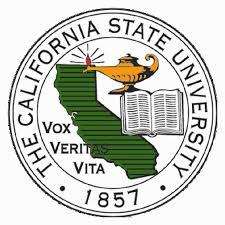The California State University (CSU) is the largest public university system in the United States, with 23 campuses across the state. The CSU is known for its high-quality education and affordable tuition. CSU students have access to a wide range of academic programs, including undergraduate and graduate degrees in a variety of fields.
The CSU is also committed to diversity and inclusion. The system’s campuses are home to students from all over the world, and the CSU offers a variety of programs and services to support students from all backgrounds.
Highlights

- High-quality education: CSU campuses are accredited by the Western Association of Schools and Colleges (WASC). CSU faculty are experts in their fields, and CSU students have access to state-of-the-art facilities.
- Affordable tuition: CSU tuition is significantly lower than tuition at private universities in California. CSU also offers a variety of financial aid options to help students afford their education.
- Diverse student body: CSU campuses are home to students from all over the world and from all walks of life. CSU students have the opportunity to learn from and connect with people from different cultures and backgrounds.
Important Dates
| Date | Event |
|---|---|
| August 21 | Fall semester begins |
| September 4 | Labor Day (no classes) |
| November 23-24 | Thanksgiving break (no classes) |
| December 11 | Last day of fall semester classes |
| December 12-18 | Final exams |
Rankings
Overall Rankings
- In the 2023 U.S. News & World Report rankings, the CSU system is ranked:
- #15 among public universities
- #51 among national universities
Affordability Rankings
- In the 2023 Kiplinger’s Personal Finance rankings, the CSU system is ranked:
- #1 among public universities for value
- #2 among all universities for value
CSU Campuses Ranked in the Top 100 (U.S. News & World Report)
- California Polytechnic State University, San Luis Obispo (#18)
- San Diego State University (#25)
- California State University, Long Beach (#51)
- California State University, Fullerton (#56)
- San Francisco State University (#63)
- California State University, Northridge (#66)
- California State Polytechnic State University, Pomona (#71)
- California State University, Sacramento (#76)
- California State University, Fresno (#80)
- California State University, Los Angeles (#83)
- California State University, East Bay (#84)
Courses
Popular Courses at CSU Campuses
- Business administration
- Accounting
- Economics
- Finance
- Management
- Marketing
- Computer science
- Engineering
- Education
- Nursing
- Psychology
- Sociology
- English
- History
- Mathematics
- Political science
- Biology
- Chemistry
- Physics
- Art
- Music
- Theatre
- Dance
Specialized Programs at CSU Campuses
- Aviation
- Animation
- Architecture
- Construction management
- Culinary arts
- Design
- Fashion
- Film and television
- Graphic design
- Hospitality management
- Interior design
- Journalism
- Landscape architecture
- Law enforcement
- Library science
- Marketing
- Medicine
- Pharmacy
- Physical therapy
- Public health
- Social work
- Veterinary medicine
Fees
Tuition Fees for Full-Time Undergraduate Students
- California residents: $5,742 per year
- Non-resident and international students: $17,041 per year
CSU campuses may also charge additional fees, such as student activity fees, technology fees, and health insurance fees. The total cost of attendance varies depending on the campus and individual circumstances.
Financial Aid and Affordability
The CSU system is committed to making education affordable for all students. CSU campuses offer a variety of financial aid options, including scholarships, grants, and loans. Additionally, CSU students have the opportunity to work part-time while attending school to help cover their costs.
For more information about tuition fees and financial aid options, please visit the CSU website or the website of the specific CSU campus you are interested in attending.
Admission
General Admission Requirements for California Residents
- Have a high school diploma or equivalent
- Complete the 15-unit college preparatory course pattern (a-g requirements)
- Earn a minimum grade point average (GPA) of 2.0 in the a-g requirements
General Admission Requirements for Non-Residents and International Students
- Have a high school diploma or equivalent
- Earn a minimum GPA of 2.4 in the a-g requirements
- Meet the English language proficiency requirement
CSU campuses also consider other factors when making admissions decisions, such as the student’s extracurricular activities, letters of recommendation, and personal statement.
Application Process
To apply to the CSU system, students must create an account and submit an online application. Students must also submit transcripts from all high schools and colleges attended, as well as test scores from the SAT or ACT (if required).
Application deadlines for CSU campuses vary depending on the campus and the program. However, most deadlines are in November or December.
For more specific information on admission requirements and application deadlines, please visit the CSU website or the website of the CSU campus you are interested in attending.
Cut offs
General Cut-offs for California Residents
Most CSU campuses have a minimum cut-off of 2.0 in the a-g requirements for admission. However, some campuses have higher cut-offs for specific programs. For example, the California Polytechnic State University, San Luis Obispo (Cal Poly SLO) has a minimum cut-off of 3.0 in the a-g requirements for admission to its engineering program.
Students can check the CSU website or the website of the CSU campus they are interested in attending for specific cut-offs.
General Cut-offs for Non-Residents and International Students
Non-resident and international students must have a minimum GPA of 2.4 in the a-g requirements to be eligible for admission to the CSU system. However, some campuses have higher cut-offs for specific programs.
Students can check the CSU website or the website of the CSU campus they are interested in attending for specific cut-offs.
It is important to note that cut-offs are just a guide. CSU campuses also consider other factors when making admissions decisions, such as the student’s extracurricular activities, letters of recommendation, and personal statement.
Students who are interested in attending a CSU campus should start planning early and make sure that they meet the admission requirements. Students should also consider submitting their applications early, as some campuses have limited space in certain programs.
Placements
California State University (CSU) Career Preparation and Placement Programs
The California State University (CSU) system places a strong emphasis on career preparation. CSU campuses collaborate with employers to provide students with valuable opportunities for internships, co-ops, job fairs, and access to alumni networks.
Benefits of CSU Placement Programs
- Gain valuable work experience in your chosen field.
- Develop your skills and knowledge.
- Make connections with potential employers.
- Improve your employability.
- Make more informed decisions about your future career.
Types of CSU Placement Programs
1. Internships
Internships are temporary work experiences that provide students with practical knowledge in their chosen field. CSU campuses offer internships with a wide range of employers, including Fortune 500 companies, government agencies, and non-profit organizations.
2. Co-ops
Co-ops are extended work experiences that allow students to alternate between semesters of work and school. CSU campuses offer co-op opportunities with major companies such as Boeing, Google, and Microsoft.
3. Job Fairs
CSU campuses host various job fairs throughout the year. These events provide students with the chance to meet potential employers, learn about job opportunities, and network. Job fairs cover a wide range of fields, including engineering, nursing, and education.
4. Alumni Networks
CSU campuses have robust alumni networks that can assist students in their job search. CSU alumni are accomplished in various fields and are often willing to help fellow alumni find employment opportunities.
Take advantage of CSU’s career preparation and placement programs to enhance your academic experience and future career prospects.
Scholarships
CSU Scholarship Programs
- CSU Trustees’ Awards: These scholarships are conferred upon students who have triumphed over adversity, demonstrated financial need, and exhibited merit attributes such as outstanding academic performance, notable personal achievements, and exceptional community service.
- Golden State Teacher Grant: This program provides awards of up to $20,000 to students currently enrolled in a professional preparation program approved by the Commission on Teacher Credentialing (CTC) and pursuing their preliminary teaching or pupil personnel services credential.
- Robert Noyce Scholarships: These scholarships encourage talented students majoring in science, technology, engineering, and mathematics (STEM) to become K-12 math and science teachers.
- CSU Alumni Association Scholarships: These scholarships are available to students who are members of the CSU Alumni Association.
- CSU Foundation Scholarships: Scholarships are granted based on various criteria, including academic achievement, financial need, and chosen field of study.
Additional CSU Scholarships
In addition to the above-mentioned scholarships, CSU campuses provide various other scholarship opportunities, including those for specific majors, underrepresented backgrounds, and students involved in extracurricular activities.
For detailed information on scholarships available at CSU campuses and how to apply, please visit the CSU website or the website of the CSU campus you plan to attend.
Frequently Asked Questions
Admission requirements vary by program and residency status. General requirements include a high school diploma, specific grade requirements, optional SAT/ACT scores, a personal statement, letters of recommendation, and extracurricular activities
The application deadline is November 1 for the fall semester and February 1 for the winter semester
Yes, the university offers career counseling, including individual and group sessions, workshops, and access to job postings.








